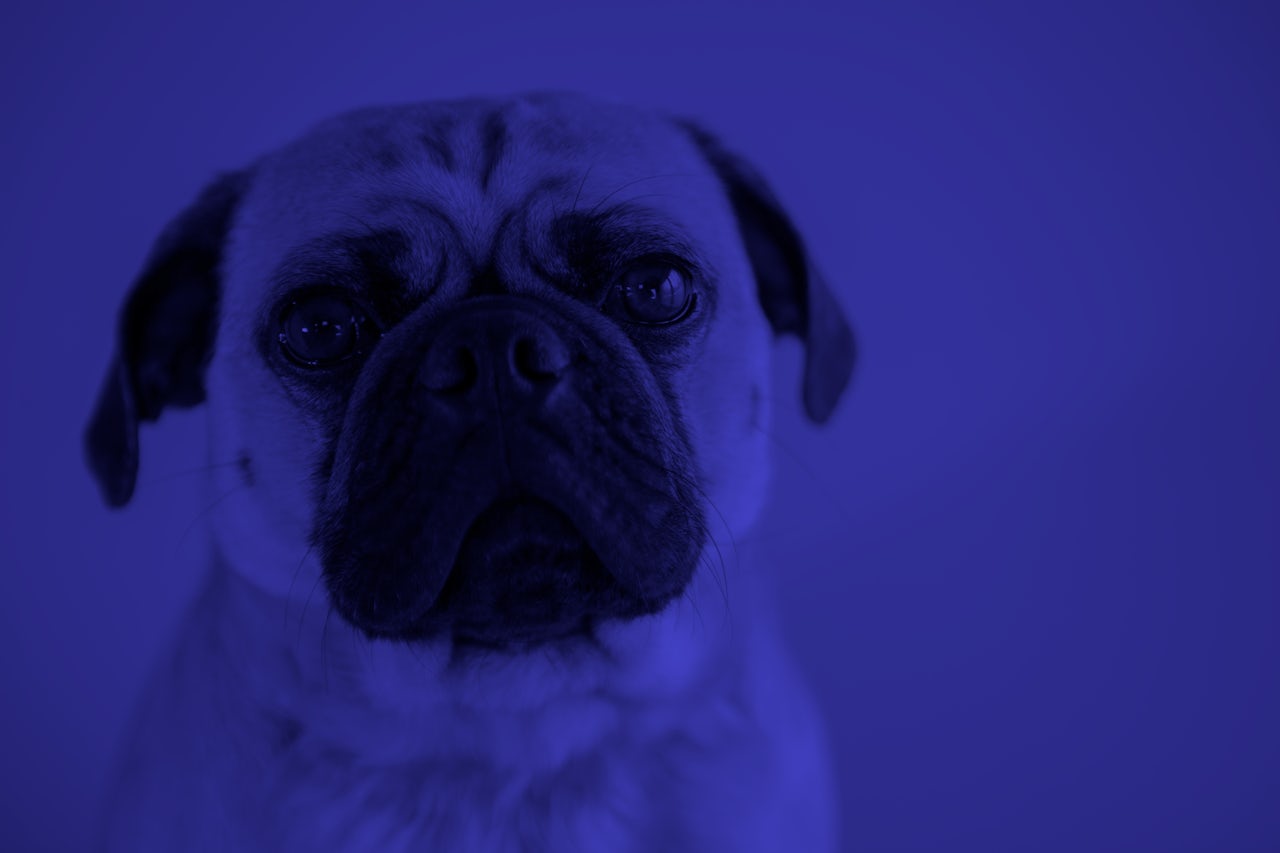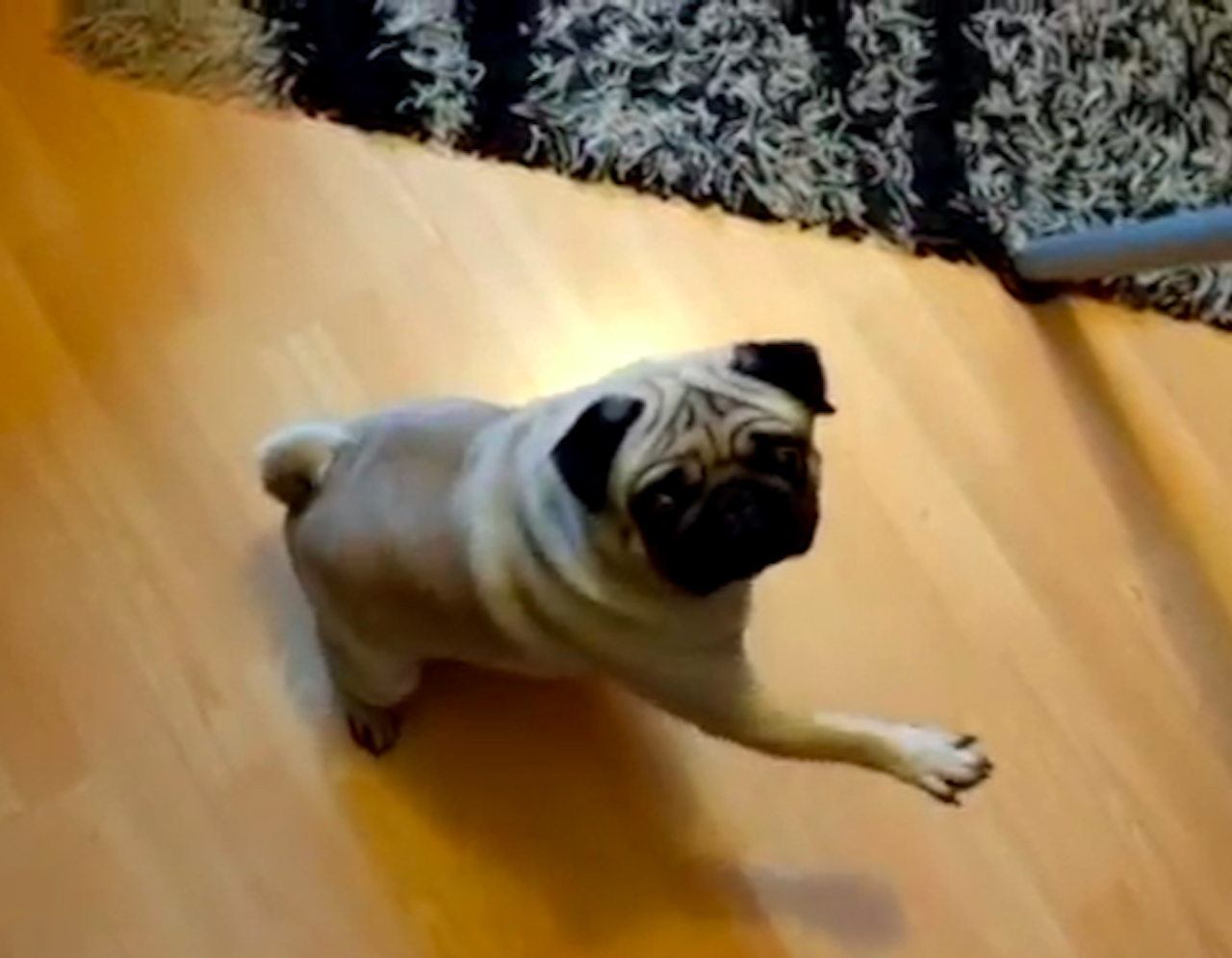In April 2016, Scottish vlogger Mark Meechan, who goes by the name Count Dankula on YouTube, shared a now-infamous video of his girlfriend’s pet pug, Buddha. In the footage, which eventually racked up over 3 million views, Meechan demonstrates how he taught the dog to raise its paw to the cue “Sieg Heil” and tilt its head in response to the phrase “Gas the jews.” The clip also features Meechan asking Buddha “Who’s a good wee Nazi?” and sitting it in front of a video of Hitler’s rally at the 1936 Olympics.
The project, he claims at the start of the video, was part of a plan to train the dog to do the least cute thing possible in order to annoy his girlfriend. Well, if the “least cute thing possible” was a protracted legal battle, then the video was a success. Last week, Scottish courts found him guilty of violating the Communications Act of 2003, concluding that the video was grossly offensive, “anti-semitic and racist in nature,” and motivated by religious prejudice; he is due to be sentenced in late April. During the trial, Meechan’s solicitor Ross Brown refuted the charge, claiming his language was a joke that has been taken out of context. It’s this claim — that prosecuting someone for a joke, however overtly offensive, represents an attack on their civil rights — that has turned a case about a canine with fascist tendencies into a flashpoint for the debate over free speech in Britain.
Not surprisingly, the story has been a favorite topic of right-wing commentators in recent months, who’ve dutifully framed Meechan as a martyr in the battle against political correctness. Canadian far-right activist Lauren Southern traveled all the way to North Lanarkshire, Scotland, to film an outraged report from outside the court. Infowars U.K. correspondent Paul Joseph Watson has covered the subject, calling the video “hilarious” and citing Meechan’s arrest a sign that he may be forced to leave the U.K. if he wants to continue running his YouTube channel. Last week, Tommy Robinson, the former leader of nationalist protest group the English Defence League, published Meechan’s first interview since his conviction. Although Meechan has repeatedly distanced himself from the far-right since the scandal broke, it is worth noting that his relationship with fringe commentators runs deeper than simply responding to requests for comment, as show-cased in this recent roundtable he did with Infowars’ Alex Jones and Tommy Robinson.
As the story has grown in profile, Meechan’s plight has also caught the attention of a number of popular British comedians. The loudest voice in the room — given his transatlantic audience of over 13 million Twitter followers — has been Ricky Gervais, the writer and stand-up responsible for Extras and The Office, who prides himself in his willingness to make light of just about any subject. When fellow U.K. comedian David Baddiel brought up the case during a radio interview in late February, Gervais immediately responded, “You can do jokes about anything.” On March 20, Gervais brought up the case again, this time on Twitter: “A man has been convicted in a UK court of making a joke that was deemed ‘grossly offensive.’ If you don't believe in a person's right to say things that you might find ‘grossly offensive,’ then you don't believe in Freedom of Speech.” The tweet has so far amassed almost 54 thousand retweets.
A man has been convicted in a U.K. court of making a joke that was deemed "grossly offensive". If you don't believe in a person's right to say things that you might find "grossly offensive", then you don't believe in Freedom of Speech.
— Ricky Gervais (@rickygervais) March 20, 2018
Gervais’ comments on the Nazi pug story are no real shock. Over the last decade, his obsession with offensiveness has seen him evolve from a writer of low-key sitcoms to a mouthpiece for banal shock-humour, such as his repeated use of AIDS as a punchline or his decision to pose as a crucified Christ on the cover of New Humanist magazine. His grandiloquent musings on free speech and atheism smack of the self-styled intellectual provocateur, and have made him the subject of extensive parody online.
Gervais’ most recent live show, Humanity, is the first of two Netflix specials in a deal reportedly worth $40 million dollars. The trailer describes it as a “love letter to free speech,” a claim he makes manifest by repeating jokes from his Golden Globes opening monologue from 2016, before comparing the experience of transgender people to him identifying as chimpanzee.
Despite supporting progressive causes like animal welfare, and even backing Jeremy Corbyn, the U.K.’s left-wing opposition leader, at the last general election, Gervais’ fixation on free-speech has won him an audience with whom he might otherwise disagree. One outspoken fan of Humanity was Infowars’ Paul Joseph Watson, whom Gervais recently responded to on Twitter, thanking him for his support. In another tweet, Watson praised Gervais for refusing to apologize to “snowflakes”; Watson’s followers subsequently chimed in to express their admiration. Now, of course, saying “cheers” to an Infowars host doesn’t mean Gervais is a member of the alt-right, but for many, it embodies the logical end point of his crusade to offend at all costs. If you’re going to say hurtful things about marginalized communities in the name of some imagined culture war, then you shouldn’t be surprised if your fan-base begins to shift toward the political fringes.
But Gervais isn’t the only high-profile British comedian chiming in on the conversation. Stephen Fry, David Baddiel, and Romesh Ranganathan have all criticized the ruling as an affront to free speech. Stand-up Shappi Khorsandi, a regular on television panel shows, wrote an op-ed for The Independent explaining that while she found the joke itself to be “horrible,” the prosecuting judge has put “all our freedom to speak without risk of arrest in grave peril.” Youtube satirist Tom Walker — in character as Jonathan Pie, a news anchor known for delivering rants on topical issues — took a slightly different tack, defending the video on the grounds that it was “making fun of Nazis” in a video titled “IT’S A JOKE.” Standing outside Airdrie Sheriff Court, Walker repeatedly shouts, “It was a joke, you cunts.”
The debate over the whether or not it's acceptable for comedians to crack jokes that genuinely offend people is nothing new. US comedians like Amy Schumer and David Cross have had to apologize for material or remarks deemed racist in the past couple of years, and more recently, Dave Chappelle, was lambasted for his stand-up special Equanimity (also on Netflix), which many found to include jokes that were offensive to the trans community. Yet, why so many British comedians have chosen Buddha the hate-pug as their hill to die on is less clear. The video itself is not a cut-and-dry misunderstood joke. Meechan’s repetition of “gas the jews” over 20 times – a phrase the dog doesn’t even react to amusingly, beyond tilting its head – seems excessive, to the point that it begins to sound far more extreme than a mere exercise in annoying his girlfriend might.
The court has deemed that making a video of a dog raising its paw in a “Nazi salute” constitutes a hate crime — a crime that may land Meechan in prison. Whether or not you agree with the verdict, it’s difficult to see where this case fits into a wider conspiracy against free speech, as sites like Infowars are suggesting. If this is an act of authoritarian thought-control, then where are the other examples that indicate this is part of a wider legal trend of government restricting comedians? What would government officials have to gain from silencing a 30-year-old vlogger called Count Dankula?
In other words, perhaps the strange story of the Nazi pug is not the moment of cultural crisis some commentators are making it out to be. Instead of signaling a full-blown assault on free expression, it would seem to be just another reminder of how murky the space between humour and hate can be — boundaries even Gervais is seemingly aware of, if not in the context of this particular case. Until we acknowledge that nuance, the U.K. is a long way off having a serious conversation about a joke.

